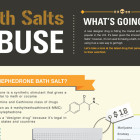
For Once, Two Brothers Behind Bars Come Home For Christmas, Part One
|
No one is 100 percent sure what Christmas in the Dykes’ house will be like this year. But Zach Dykes, 17, a senior at metro Atlanta’s Hillgrove High School, is pretty sure it’ll be better than last year’s. It almost has to be. Zach was in the Cobb County Youth Detention Center on drug charges until Christmas Eve last year. His older brother, Robbie, 23, was in prison, serving an 18-month prison sentence on a drug conviction.







